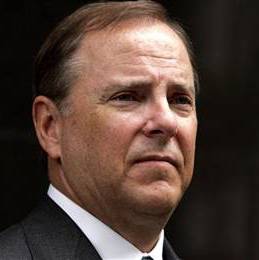It is not hard to see how critics of the war on drugs got the impression that Barack Obama was sympathetic to their cause. Throughout his public life as an author, law professor, and politician, Obama has said and done things that suggested he was not a run-of-the-mill drug warrior….
[But] Obama’s drug policies … by and large have been remarkably similar to his predecessor’s. With the major exception of crack sentences, which were substantially reduced by a law the administration supported, Obama has not delivered what reformers hoped he would. His most conspicuous failure has been his policy on medical marijuana, which is in some ways even more aggressively intolerant than George W. Bush’s, featuring more-frequent raids by the Drug Enforcement Administration (DEA), ruinous IRS audits, and threats of prosecution against not only dispensaries but anyone who deals with them. “I initially had high hopes,” says Marsha Rosenbaum, “but now believe Obama has abdicated drug policy to the DEA.”
It would be going too far to say that Obama has been faking it all these years, that he does not really care about the injustices perpetrated in the name of protecting Americans from the drugs they want. But he clearly does not care enough to change the course of the life-wrecking, havoc-wreaking war on drugs….
We know how Obama responds when the question of marijuana legalization comes up in public: He laughs. The highest-rated questions submitted for his “virtual town meeting” in March 2009 dealt with pot prohibition. “I don’t know what this says about the online audience,” Obama said with a smirk, eliciting laughter from the live audience, “but…this was a fairly popular question.”
Obama’s dismissive attitude was especially galling in light of his own youthful pot smoking, which he presents in Dreams From My Father as a cautionary tale of near-disaster followed by redemption. “Junkie. Pothead,” he writes. “That’s where I’d been headed: the final, fatal role of the would-be black man.” Judging from the reports of friends interviewed by The New York Times in 2008, Obama exaggerated his brush with addiction for dramatic effect. More important, he has never publicly acknowledged the plain truth that people who smoke pot rarely become junkies or suffer any other serious harm as a result — unless they get caught.
As Richard Nixon’s National Commission on Marihuana and Drug Abuse pointed out when Obama was all of 10 years old, the biggest risk people face when they smoke pot is created by the government’s attempts to stop them. In 1977, when Obama was a pot-smoking high school student in Honolulu, President Jimmy Carter advocated decriminalizing marijuana possession, telling Congress that “penalties against possession of a drug should not be more damaging to an individual than the use of the drug itself.”
That is hardly a radical position. Polls indicate that most Americans think pot smokers should not be treated like criminals…
In New York City, where marijuana arrests have increased dramatically since the late 1990s, blacks are five times as likely to be busted as whites. The number of marijuana arrests by the New York Police Department (NYPD) from 1997 through 2006 was 11 times the number in the previous 10 years, despite the fact that possession of up to 25 grams (about nine-tenths of an ounce) has been decriminalized in New York….
Obama attended Columbia University in the early 1980s, well before the big increase in marijuana arrests that began a decade later. There were about 858,000 pot arrests nationwide in 2009, more than twice the number in 1980, and the crackdown has been especially aggressive in New York City under Mayors Rudolph Giuliani and Michael Bloomberg (another former pot smoker). “The odds are not bad,” observes Ethan Nadelmann, “that a young Barry Obama, using marijuana at Columbia, might have been arrested had the NYPD been conducting the number of marijuana arrests then that it is now.”
A misdemeanor marijuana conviction could have been a life-changing event for Obama, interrupting his education, impairing his job prospects, and derailing his political career before it began. It would not have been fair, but it would have spared us the sorry spectacle of a president who champions a policy he once called “an utter failure” and who literally laughs at supporters whose objections to that doomed, disastrous crusade he once claimed to share.





